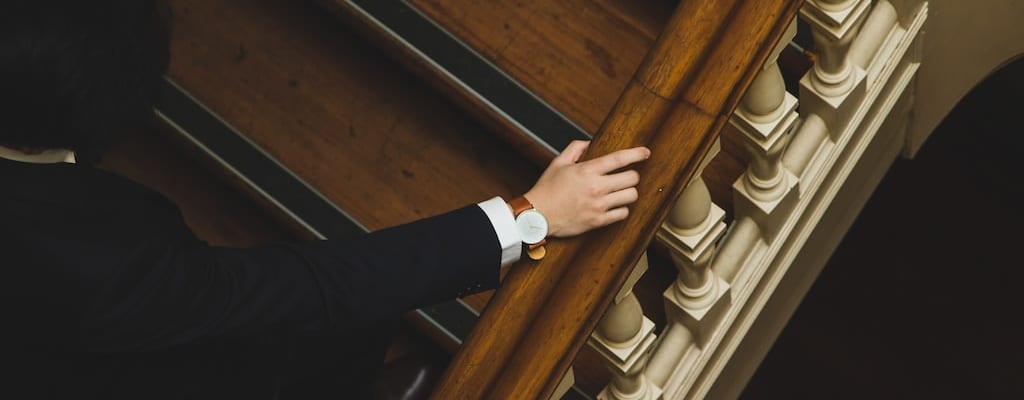creature comfort: Idiom Meaning and Origin
What does ‘creature comfort’ mean?
The idiom "creature comfort" refers to the basic or essential physical needs and comforts that are necessary for a person's well-being and contentment.

Idiom Explorer
The idiom "keep someone company" means to stay with or accompany someone in order to provide them with companionship or prevent them from feeling lonely.
The idiom "human touch" refers to the personal connection or interaction between people, often emphasizing the warmth, empathy, and understanding that can be conveyed through physical contact, gestures, or personal attention.
The idiom "home sweet home" is used to express a feeling of comfort, familiarity, and contentment when one is back in their own home environment.
The idiom "home away from home" refers to a place where one feels comfortable and at ease, as if it were their own home, despite being away from their actual residence.
The idiom "good life" refers to a state of living that is comfortable, enjoyable, and fulfilling. It implies a life filled with happiness, success, and contentment.
The idiom "fish out of water" refers to a person who feels uncomfortable or out of place in a particular situation or environment.
The idiom "feel oneself" means to feel normal, healthy, or back to one's usual self after a period of illness or discomfort. It suggests a return to physical or emotional well-being.
The idiom "featherless biped" refers to a human being. It signifies a creature that lacks feathers like birds but walks on two legs.
The idiom "feathered friend" refers to a bird, usually kept as a pet or considered as a companion. It suggests that birds are loyal and trustworthy, emphasizing their presence as comforting and friendly creatures.
"Cozy Luxuries"
The idiom "creature comfort" refers to the physical amenities and material possessions that contribute to a person's well-being and happiness. It emphasizes the importance of finding comfort and contentment in the things that provide a sense of security, convenience, and luxury in our lives.
Derived from the combination of "creature," which means a living being, and "comfort," which denotes a state of ease and satisfaction, this phrase highlights the significance of physical comforts in enhancing the overall quality of our existence.
While the exact origins of this idiom are not known, it is believed to have its roots in the Middle English phrase "comforte of the creature," which appeared in medieval texts. Initially, it referred to the care and support provided by God to his creations, emphasizing the idea of divine comfort.
Over time, the meaning of "creature comfort" expanded to include the comforts and conveniences that humans create for themselves. It now encompasses the physical amenities and possessions that contribute to our well-being, such as a cozy home, luxurious furniture, or modern appliances that make life more comfortable and convenient.
In today's technologically advanced society, the concept of "creature comfort" has evolved even further. It now includes a wide range of modern conveniences that have become integral to our daily lives, such as smartphones, high-speed internet, and other electronic devices that provide us with entertainment, connectivity, and efficiency.
The idiom "creature comfort" is deeply ingrained in the English language and is frequently used in various contexts. It can refer to both the basic necessities of life and the indulgences that bring pleasure and ease to individuals. It serves as a reminder of the importance of finding comfort and fulfillment in life's little pleasures and reminds us to prioritize our well-being and happiness.
One related idiom to "creature comfort" is "comfort zone." This phrase describes a psychological state in which a person feels comfortable and secure, often avoiding risks or challenges that may lead to personal growth. Just as creature comfort refers to the physical comforts that enhance our well-being, the comfort zone refers to the psychological comfort that stems from sticking to familiar routines and environments.
Another related idiom is "creature of habit." This describes a person who has a strong inclination to do things in a certain way and resists change. They find comfort in their established routines and habits and may be hesitant to try new experiences or deviate from their usual course of action. This idiom highlights the human tendency to seek comfort in familiar patterns, even if they may not always be beneficial.
The phrase "comfortable in one's own skin" is another related idiom. It describes a person who is confident and at ease with themselves, without feeling the need to seek validation or approval from others. This idiom emphasizes the importance of self-acceptance and self-confidence, as true comfort comes from within and does not rely on external factors or the opinions of others.
"cold comfort" is yet another related idiom. It refers to a situation in which someone receives little or no consolation or relief from a disappointing or distressing circumstance. It captures the idea that even though there may be some semblance of comfort or solace, it is not enough to truly alleviate or improve the situation. This idiom highlights the limitation of superficial comforts in providing genuine satisfaction or relief.
The final related idiom is "comfortably off." This phrase describes someone who is financially secure and has enough money to live comfortably. It relates to the idea that financial stability and security contribute to our overall well-being and sense of comfort. Being "comfortably off" means having the means to afford the creature comforts that enhance our quality of life.
The idiom "creature comfort" encompasses the physical amenities and material possessions that contribute to a person's well-being and happiness. Its origins can be traced back to medieval times and it has since evolved to include a wide range of modern conveniences. This idiom serves as a reminder to cherish and prioritize the creature comforts that enhance our lives. Additionally, related idioms such as "comfort zone," "creature of habit," "comfortable in one's own skin," "cold comfort," and "comfortably off" offer further insights into the various aspects of comfort and well-being in our lives.
Example usage
Examples of how the idiom "creature comfort" can be used in a sentence:
1. After a long day of hiking, finding a cozy cabin with hot showers and comfortable beds was a true creature comfort.
2. During the camping trip, my friend brought her favorite pillow from home to provide some extra creature comfort in the tent.
3. The hotel room was equipped with all the necessary creature comforts, including a mini fridge, television, and luxurious bathrobes.
More "Comfort" idioms
We missed the mark - nothing found.



